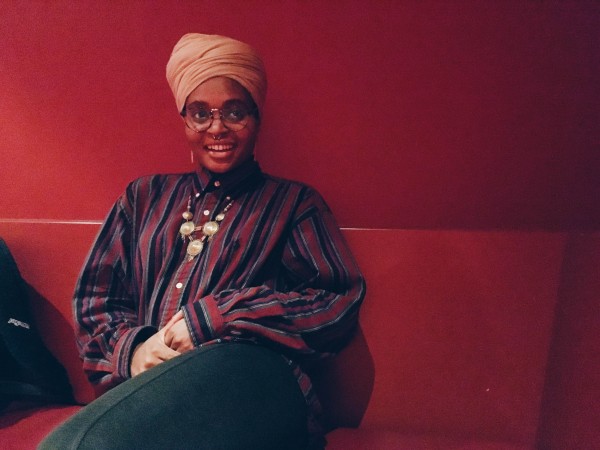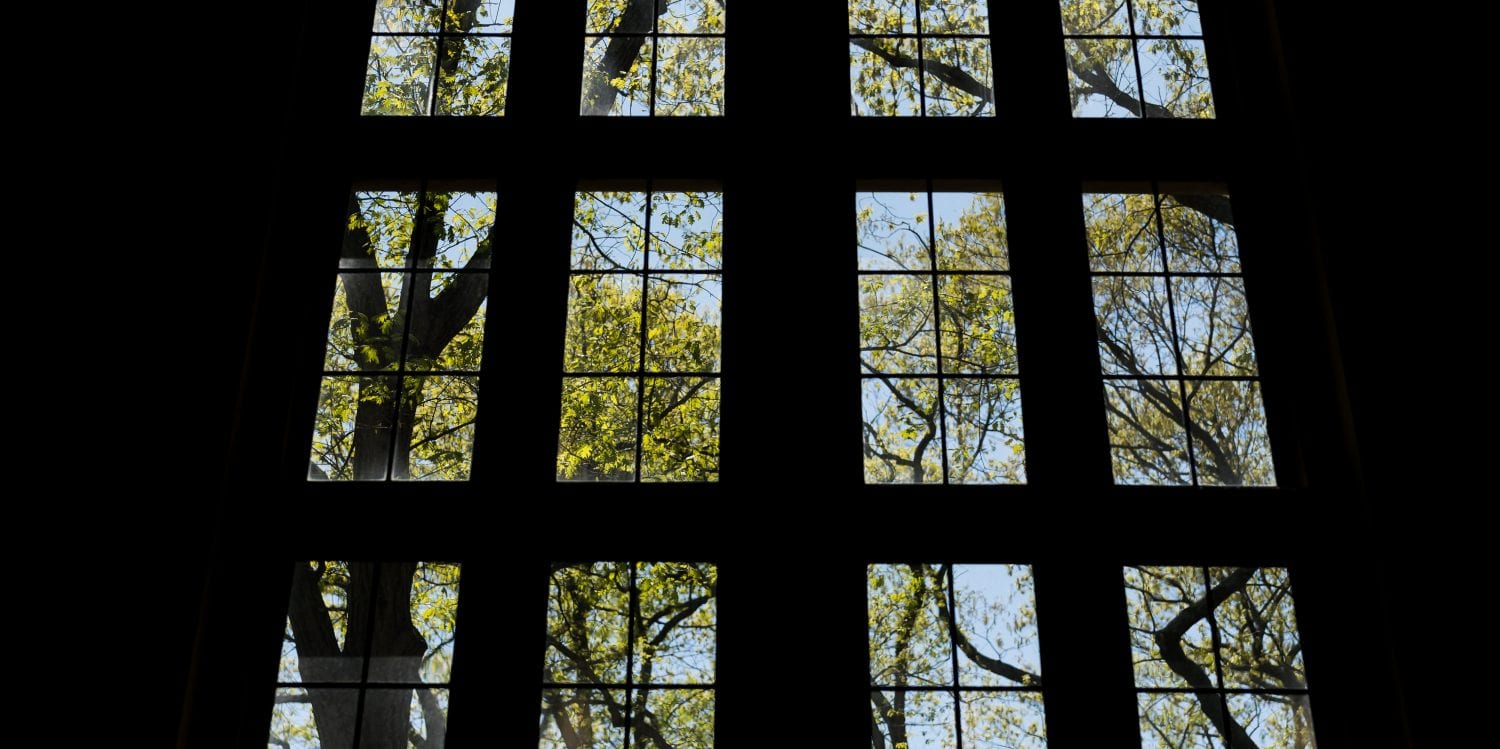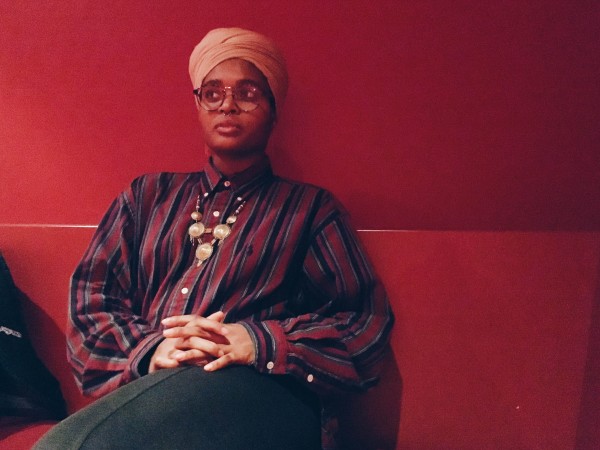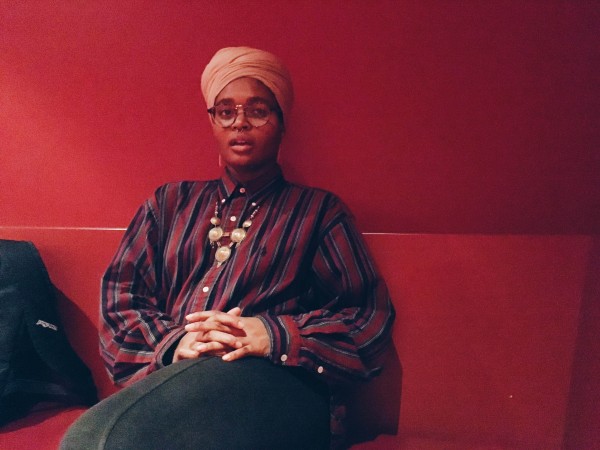Do you have someone in your life that you’re still in disbelief that you know them?
Yeah, Dom is more than her, more than him.
As I listened to Dom tell me about their life, I stopped taking detailed notes at one point because I was afraid to miss something they said by focusing too much on what I was writing. I decided 5 minutes into our conversation that I’d quote Dom verbatim instead of paraphrasing their words for the majority of this post because their words are so beautiful. But then, my phone failed to properly capture more than ten minutes of our interview. To say I was sad is insufficient.
So please forgive me for not being able to deliver to you their wis-Dom with the appropriate level of eloquence (see, my dad jokes are already making their way in). But in truth, the medium of the message is not so important, because Dom is more than words. They are more than words on a page, more than words spoken, more than I could ever explain in a few paragraphs on a blog page.
But I will attempt to do so anyway.
• Where are you from?
Dom Steele was born in Atlanta, Georgia. My knowledge of Atlanta is limited to what my friend at Spelman has told me and what I see on Donald Glover’s show, but I’ve always wanted to visit. The way Dom spoke of their home – an incredible, complicated place rich in art and history – convinced me that, like many of us, their relationship with home is deep and personal.
Dom explained to me the “particularities of Southern society” that put perceived status, connections, and knowledge of place and history at the forefront of many interactions. “People will test you,” they said, on who you know, what you know, and why you’re in Atlanta. And with good reason – how else can you know if you can trust someone? This sense of belonging, of owning and claiming your “home,” is something that Dom has grown up with and come to embrace. On top of all of this, home is where their Jamaican parents live and where their immense support for Dom comes from. Despite their differences in worldview, Dom’s godparents and parents have and will continue to be the support system many of us come to Wellesley looking for.
Why did you come to Wellesley? Why did you stay?
No matter how comfortable and loving home is, though, come senior year of high school, Dom Steele was ready to get out. They felt constrained – by the city they grew up in, the people they knew and how they perceived them, by the “same conversations” being repeated over and over again – and by graduation was very ready to release themself from the tight embrace of home.
Dom saw that the way to achieve this growth was by engaging in more complicated discussions about the world in a new and challenging environment, so they looked to the Northeast. These conversations are hard to have, though, when you’re not used to speaking up for yourself; the extremely introverted, introspective person Dom was in high school had to make some changes. When Dom spoke of the lack of confidence and voice they had prior to Wellesley, it was hard for me to believe at first because I knew (or perceived) Dom to be this immensely confident, well-spoken, dominant presence. Ask any of the first years who saw their piece at the Let Me Speak performance during orientation and I’m sure they’ll say the same. But it dawned on me that much of this confidence and grounding I admire Dom so much for must have developed because of the intense change in environment they experienced leaving Atlanta to come to Wellesley. Sitting in the corner of Punch’s Alley, our faces lit an absurd red hue, Rihanna’s ANTI blasting in the background and dozens of students engaged in loud conversation, I also realized that Dom offers more calm and wisdom through their mere presence than a lot of people do when they’re actively trying.
Seeking to become someone who wanted to be loud and heard, and “to discover a more dynamic version” of themself, Dom flew out from the South to this Northeastern suburb during their senior year of high school for Discover Wellesley Weekend, and stayed with a student to figure out whether this was going to be the place that would give them the space and opportunity for growth. The senior that Dom stayed with during this visit helped convince them that Wellesley is indeed that place.
• Have you found home, purpose, passions at Wellesley?
Having finally found a queer affirming space (despite its shortcomings and hypocrisies, Wellesley is a school that actively attempts to embrace its non-straight students) and a place where they “felt free to be and explore myself,” Dom was pretty excited to be able to start calling this place home.
During our first year, Dom recognized the potential for not just discussing but enacting social justice on this campus. Inspired by Harvard’s “I, Too, Am Harvard” movement, Dom decided to start a campaign on our own campus focusing on the experiences of minority students at Wellesley with the “I, Too, Am Wellesley” project. Through working on this initiative Dom learned a lot about their strengths and weaknesses, and was forced to push themself to speak up about as well as listen carefully to the stories Wellesley students were sharing with them.
But then they overloaded themselves in their sophomore year by joining way too many campus organizations (seems like a common theme here at Wellesley… read: Lamisa’s experience as well). Dom also switched majors from Neuroscience to Women’s and Gender Studies to Psychology to Sociology and eventually landing on Spanish. The indecision, frustrations, and “floating” experience Dom spoke about having in their sophomore year, of not knowing where and when to put her energy, was eventually what led them to decide to to study abroad.
• What are some summer/winter session highlights? Did you go abroad?
Dom spent their entire Junior year away from Wellesley, and away from me, studying at Spelman in the fall (Wellesley offers semester- or year-long domestic exchange at Spelman College) and in the Dominican Republic in the Spring. Both places are so different from Wellesley in so many ways, I asked Dom to tell me the most intense differences they noticed.
They told me that Spelman and Santo Domingo were also similar in the fact that everyone knows everything about everyone. “Isn’t that Wellesley, too?” I asked. With less than 2600 undergraduate students total and even less people constantly on this massive campus, I always think of Wellesley as thing insular little bubble where we all “know” each other to some degree. But, apparently, Atlanta and Santo Domingo as cities share the features we see here at this small liberal arts college.
They also told me that the very gendered and rigid social structures at Spelman and in the D.R. stand in stark contrast to the freedom of expression that is so normal at Wellesley. “The way I dress, at Wellesley people usually just see me as eccentric or expressive. But the respectability politics at play on the Spelman College campus and my occasional difficulties navigating Dominican society gave me little room to stick out and be comfortable.”
While in Atlanta, Dom found themself wanting to go against the current and not minding too much that didn’t fit the aesthetic norm, they wanted to put more effort into assimilating in Santo Domingo. “I really didn’t want to be seen as a gringo,” a term commonly used to reference white Americans but in many Spanish-speaking communities is used to refer to Americans in general, regardless of appearances. The ups and downs of this year away from Wellesley gave Dom the strength to be able to recognize the difference between navigating and assimilating in unfamiliar places, and to be comfortable with being uncomfortable.
• What next?
“I want to bring the self I built at Wellesley to the work I do, wherever I go.”
After graduation in May, Dom wants to go home. They are looking forward to finding ways to fuse their interest for public health with reproductive justice work and advocacy for the queer and trans community in the Greater Atlanta area. “I want to continue to intertwine the knowledge, ethics and insight I have acquired during my Wellesley experience to work and to bring a radical social justice perspective to any space that I am in.”
• Advice?
- Own yourself.
- Don’t feel like you need to know yourself before getting to Wellesley.
- Take your time to figure shit out – it’s going to be fine.
- Seek to build resilience and mindfulness.

Dom, Thank you for your your patience, wisdom, heart and art.


